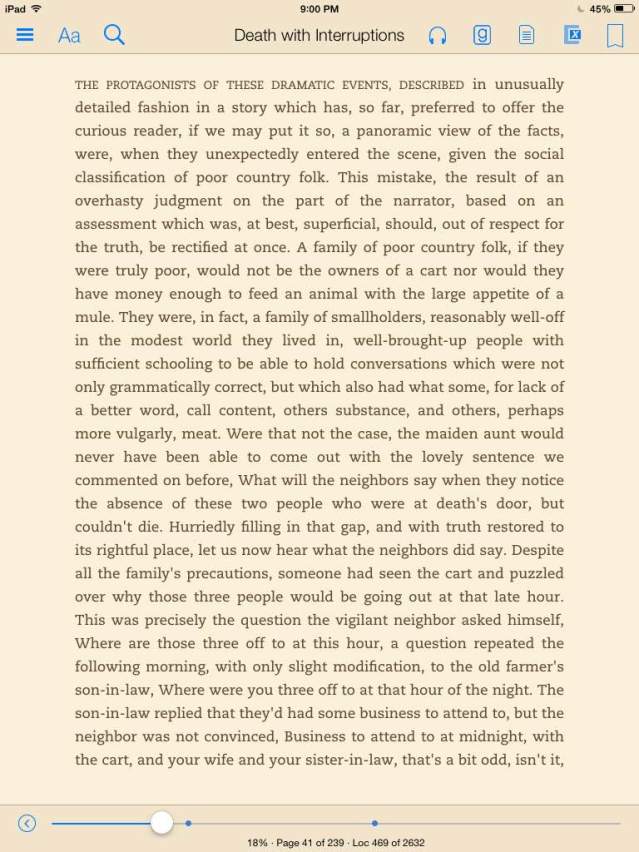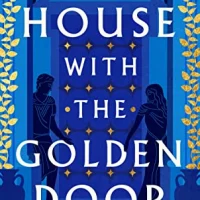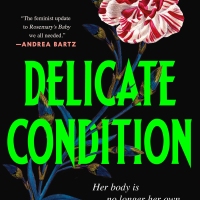Audiobook Review: Death with Interruptions by José Saramago
 Genre: Magical Realism, Fantasy, Science-Fantasy
Genre: Magical Realism, Fantasy, Science-Fantasy
Publisher: Houghton Mifflin Harcourt (October 6, 2008)
Author Information: Website
Tiara’s Rating: 4 of 5 stars
Goodreads | Amazon | Barnes & Noble
Narrator: Paul Baymer | Length: 7 hrs and 43 mins | Audiobook Publisher: Audible Studios (December 20, 2011) | Whispersync Ready: Yes
“…or if, on the contrary, he should bite back his tears and continue on his way to where his work awaits him and fill up what days remain to him, then feel able to ask, Death where is thy victory, knowing, however, that he will receive no reply, because death never replies, not because she doesn’t want to, but because she doesn’t know what to say in the face of the greatest of human sorrows.” – pg. 138
This is the second book by Saramago that I’ve read. The first being Blindness, which was turned into a movie starring Julianne Moore, Danny Glover, and Mark Ruffalo, just to name a few, and surprisingly, it wasn’t a bad take on the story. It explored the crumble of a city and its increasing moral decay due to its residents being afflicted with something called “white blindness.” I loved that book, so to say I had high hopes for this one would be an understatement.
This book starts with a strong proclamation:
The following day, no one died. This fact, being absolutely contrary to life’s rules, provoked enormous and, in the circumstances, perfectly justifiable anxiety in people’s minds, for we have only to consider that in the entire forty volumes of universal history there is no mention, not even one exemplary case, of such a phenomenon ever having occurred, for a whole day to go by, with its generous allowance of twenty-four hours, diurnal and nocturnal, matutinal and vespertine, without one death from an illness, a fatal fall, or a successful suicide, not one, not a single one.
With such a bold statement, you expect the author to deliver something huge to explain the phenomena. This cessation of death affects only one unnamed country, and it only affects the humans. Life and death continue to ebb and flow around the world. At first, this is seen as some fortuitous thing, but many of the dying are in a state of not being quite dead and not being quite alive and continuing to age and decay. Joy eventually gives way to the stark realities of the dead not dying and its consequences on life as they know it, causing many political, religious, medical, and philosophical debate as they try to figure out why death has abandoned them, leading some of its citizens to consider extreme measures to help their ailing loved ones or just simply to get rid of a burden by secretly crossing into countries where the near-dead can still die, which sets a moral precedent that sets off more debates.
Much of this book is spent exploring large ideas as:
Whether we like it or not, the one justification for the existence of all religions is death, they need death as much as we need bread to eat [..] Because philosophy needs death as much as religions do , if we philosophize it’s in order to know that we will die, as monsieur de montaigne said, to philosophize is to learn how to die.
It also asked questions, such as:
Have you ever wondered if death is the same for all living beings, be they animals, human beings included, or plants, from the grass you walk on to the hundred- meter- tall sequoiadendron giganteum, will the death that kills a man who knows he’s going to die be the same as that of a horse who never will […] I never imagined that their death would be the same death I would one day die, Because each of you has his or her own death, you carry it with you in a secret place from the moment you’re born, it belongs to you and you belong to it.
It’s not until midway through the book after reading a story heavy with political and philosophical themes, that death with lowercase d, because claims that Death with a capital D is something entirely different that humans would never be able to conceive should she arrive, that she is the difference of the relative and the absolute, finally reveals herself and proclaims that she’s committed a grave injustice during those eight months and will continue her duties with a few changes, changes she sees as benevolent but the people feel are cruel. Death explains that she was merely conducting an experiment to teach humans a lessons, but that her means may have been extreme. While death is welcomed, her changes are not and soon people are trying to find her by using various scientific means.
Around this time in the story, death becomes infatuated with a mediocre musician who refuses to die despite how many time she decrees it. Suddenly, she is the one analyzing and trying to figure out what right, what power, does he possess to defy death. In the end, she takes human form to confront him and tell him that he will die. Instead, she falls victim to one of the basest of human emotions–love. While this seems such a strange angle to add to the story, it was so superbly done that I could only applaud Saramago’s sagacity with this angle. After spending so much of the story politicking, even death in her own way, a simple human emotion is her undoing.
However, I must be fair and talk about the things that I took issue with. One point of contention came for me in the form of the maphia (pronounced the same as mafia and pretty much in the same business, even if they made an effort to distinguish themselves from the mafia), which is why I took off for the rating some. While initially, their role made sense with manipulating many industries from the ministries to the transporting of the dying, after the reveal midway through the book, their new tactics to scheme and make money seemed somewhat contradictory in a way. However, maybe the translation of death’s intentions for humanity and dying didn’t translate as it should have and I misunderstood and it made total sense. Either way, there was some disconnect for me there.
Another thing, and I probably really shouldn’t complain about this is, is the translation itself. While I’m sure it was a good translation, there was so many big ideas there that I really liked then and they seemed to translate well, as I mentioned, but this could be a little tedious for people just reading the book. There are no quotations or many markers distinguishing between the omnipresent narrator and the characters. I could see that getting really mucky for some people because this book has sprawling paragraphs, and walls of text can be very unfriendly for readers. Just to give you an idea of the wall of text that you typically encounter in this book:
 That paragraph doesn’t end there and goes on for about three more pages before we get a paragraph break. Seriously. So, that’s another thing that could’ve been as well–the editing and layout of the book. However, this could’ve been Saramago’s intent to give it a certain feel by eschewing grammatical standards, which can still be a bit of a tough sell even if he was trying to be ingenious. Luckily, in the audiobook, the narrator used different voices, which helps. However, while Paul Baymer was an excellent speaker, he seemed to use mainly the same two voices for speakers with maybe some slight variation on female speakers. I also had a problem with his pitch seeming to change suddenly, his voice getting deeper, or him suddenly sounding like he was in a tin can, despite me listening to the book at a normal speed throughout.
That paragraph doesn’t end there and goes on for about three more pages before we get a paragraph break. Seriously. So, that’s another thing that could’ve been as well–the editing and layout of the book. However, this could’ve been Saramago’s intent to give it a certain feel by eschewing grammatical standards, which can still be a bit of a tough sell even if he was trying to be ingenious. Luckily, in the audiobook, the narrator used different voices, which helps. However, while Paul Baymer was an excellent speaker, he seemed to use mainly the same two voices for speakers with maybe some slight variation on female speakers. I also had a problem with his pitch seeming to change suddenly, his voice getting deeper, or him suddenly sounding like he was in a tin can, despite me listening to the book at a normal speed throughout.
I really loved all the elements presented in this book. The book was such a dichotomy seeming to preach on morality in one turn against certain things happening while sarcastically showing the ridiculousness of many ideas of politicians, theologian, and philosophers alike. It shows how money rules so many things, and that even with something as awe-inspiring as death ceasing, people will find a way to make money off anything. The questions and ideas this presented are really made for people who enjoy thinking about ideas like these on a grander scale. It appealed to that part of me that loves this sort of philosophical debate and even the idea of death falling in love didn’t cheapen the story. Did I like this more than Blindness? Probably not, but even for some of their similarities in themes, I enjoyed this book for its own reasons and found it brilliant even if the format wasn’t the greatest, which means I’m still going to rate it fairly high because of personal bias.
Story: ![]() | Performance:
| Performance: ![]() | Overall:
| Overall: ![]()













I am a bit scared of this one
LikeLiked by 1 person
It’s not a scary book. It’s really a very philosophical look at death and then throws you for a loop because death turns out to be not just an abstract concept but an actual woman trying to do her job.
LikeLike
Pingback: Audiobook News & Reviews: 07/18-07/20 | ListenUp Audiobooks
Pingback: Tough Traveling: Middle-Aged Heroes | The BiblioSanctum
Great article!
Wendy
http://www.withlovefromwendy.com/
LikeLiked by 1 person
Pingback: Top Ten Tuesday: 10 Of My Most Recent 5 Star Reads | The BiblioSanctum